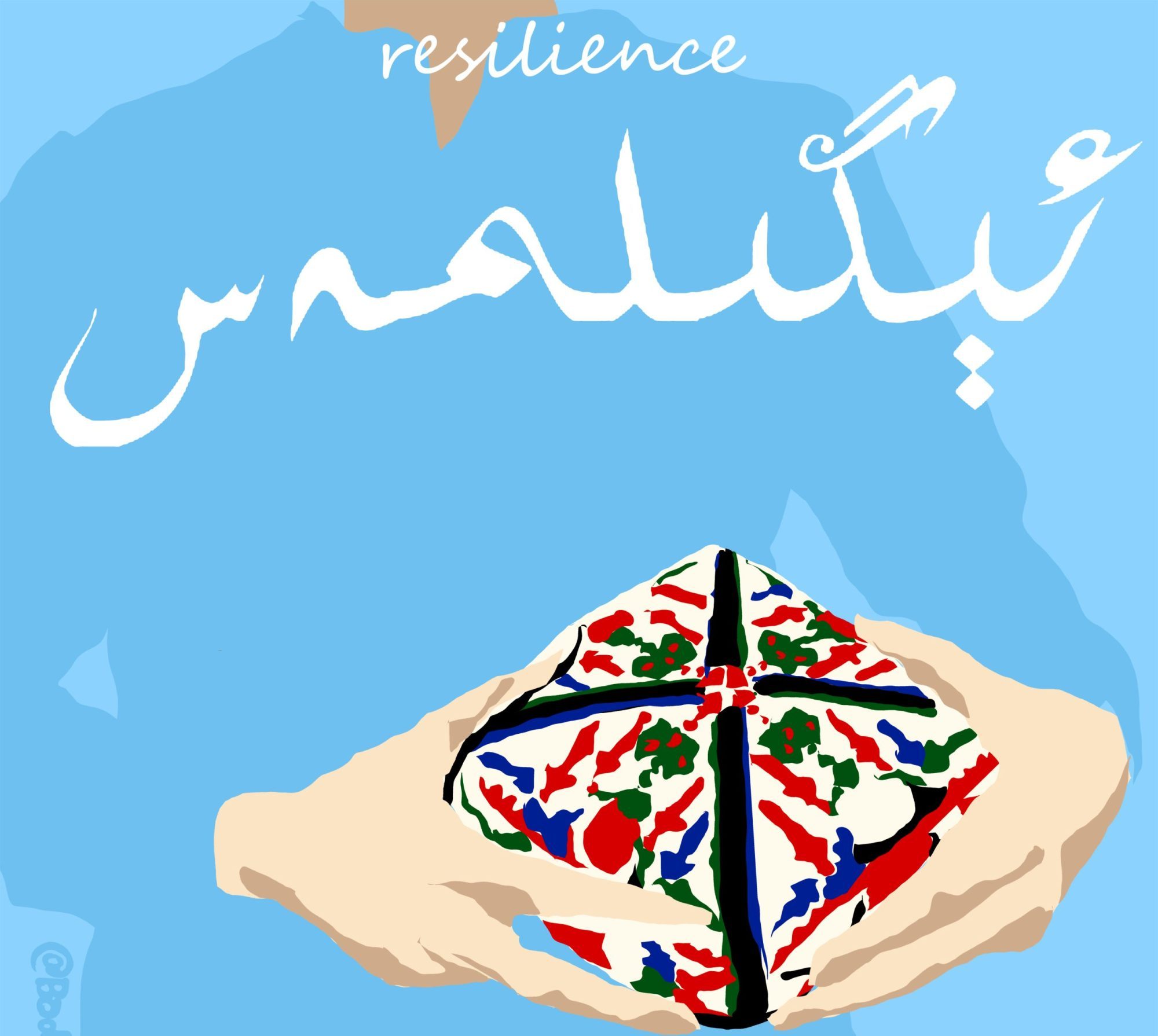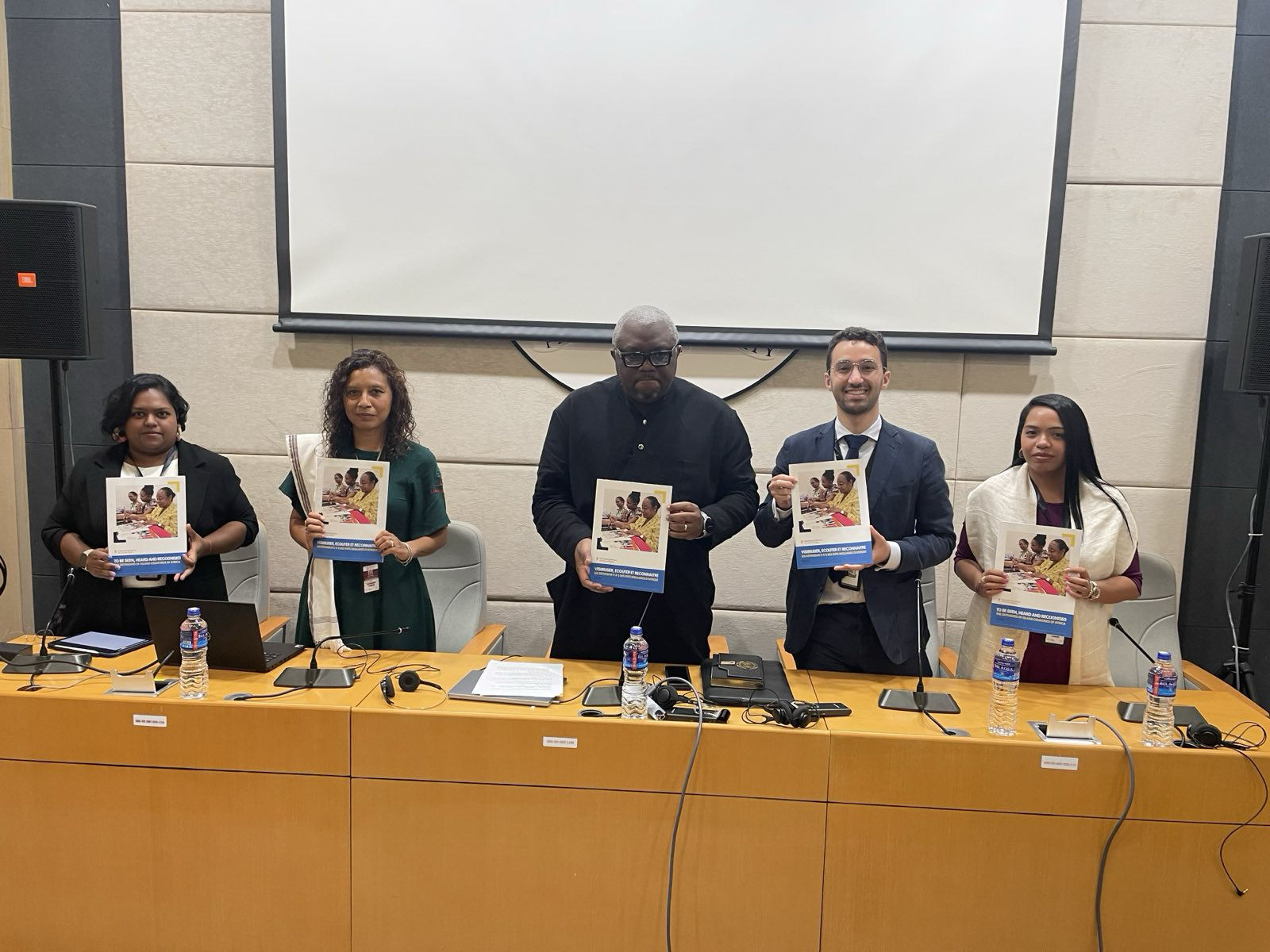
Egypt: Reform unjust vice laws, guarantee open civic space
During Egypt's UPR adoption at HRC59, Nora Noralla delivered a joint statement on behalf of ISHR, Cairo 52 and Middle East Democracy Center. Watch and read the full statement below.
Illustration: @Badiucao

Faced with overwhelming evidence, and in line with the Human Rights Council’s mandate and objective criteria for action, ISHR calls on all States to support the establishment of an independent international mechanism to monitor and report on human rights in China and promote accountability for violations.
As the Human Rights Council opens, the International Service for Human Rights (ISHR) calls for urgent, concrete action to hold China accountable for human rights violations, including in the Uyghur region, that may amount to crimes against humanity.
The call was underpinned by a landmark report by the OHCHR (Office of the UN’s High Commissioner for Human Rights) which found evidence of systemic discrimination, mass arbitrary detention, torture, and sexual and gender based violence perpetrated by Chinese authorities against Uyghurs and other predominantly Muslim communities in the Xinjiang region.
The OHCHR assessment report documents a range of violations that, given their severity and extent, likely constitute atrocity crimes under international law. In the face of overwhelming evidence, it is now imperative that States, UN agencies and the international community take action to promote accountability and prevent further grave violationsPhil Lynch, ISHR Executive Director
To fail to do so would not simply allow China to enjoy impunity. It would constitute a failure to stand with Uyghurs and other survivors of abuse, and a failure to stand up for basic principles upon which the Human Rights Council is founded - namely that all persons should enjoy all human rights without discrimination.Phil Lynch, ISHR Executive Director
Some 20 Human Rights Council Member and Observer States have already welcomed the report in the context of a General Debate with the Deputy High Commissioner at the UN, including Canada, Türkiye, the United Kingdom, and Czechia on behalf of all European Union Member States.
For perhaps the first time, we are seeing a substantial decrease in support among those willing to turn a blind eye to China's abuses, and at the same time a strong showing among governments stressing that more action is needed to address the situation in the Uyghur Region.Raphael Viana David, ISHR China and Latin America Advocate
ISHR welcomes the important attention paid to the situation by over 40 UN ‘Special Procedures’ experts, in particular the Special Rapporteur on contemporary forms of slavery and the Working Group on Enforced and Involuntary Disappearances, as well as other UN human rights mechanisms as per ISHR analysis.
The UN human rights mechanisms have done their job; dozens of experts recently called upon the Council to advance accountability, including through a special session and appointment of a new expert or mechanism to monitor and report on the situation in China.Sarah M Brooks, ISHR Programme Director
A panel of activists working in support of Uyghurs, Tibetans, Hong Kongers and human rights defenders across mainland China, jointly urged the Human Rights Council to adopt a resolution addressing structural rights violations against all affected communities in China, at a side event to the Human Rights Council convened on 19 September by ISHR, the World Uyghur Congress, Students for a Free Tibet, Christian Solidarity Worldwide, Tibet Justice Center, UNPO, CIVICUS and the FIDH.
This will be the challenge facing incoming High Commissioner Volker Türk: to be courageous, principled, and consultative in the way his Office follows up on their findings, and works to prevent future violations. Victims and survivors of violations will be looking to him for solidarity as well as concrete action to promote accountability for perpetrators.Sarah M Brooks, ISHR Programme Director
In addition to its statement to the Human Rights Council, ISHR also joined with leading international NGOs and Uyghur groups in an open letter calling on all States at the UN to ‘mandate an independent international investigation into human rights violations against Uyghurs, Kazakhs and other primarily Muslim ethnic minority groups in the People’s Republic of China’.
The full text of ISHR’s statement to the Human Rights Council is below.
Mr Vice-President, Deputy High Commissioner,
We welcome the release of the OHCHR report concluding that Chinese authorities have committed grave human rights violations against Uyghurs and other predominantly Muslim communities that may amount to crimes against humanity.
Through rigorous methodology and extensive evidence, and in view of its mandate to protect and promote all human rights for all, the Office documents a range of serious abuses – from ‘far-reaching discriminatory restrictions,’ to large-scale arbitrary detention, torture, and sexual and gender-based violence. It identifies China’s ‘deeply problematic’ anti-terrorism laws and policies, which conflate certain ‘religious or cultural practice or expression…with extremism’, as a root cause of these and other violations.
The report also notes intimidation and threats that transcend borders, as well as the devastating impact of enforced disappearances on those left without knowledge of their family members’ health, whereabouts or freedom; people like Ziba Murat who told us that she will continue to speak up until she sees her mother, prominent Uyghur doctor Gulshan Abbas, released, in her arms, and able to hug her grandchildren.
Faced with overwhelming evidence, and in line with this Council’s mandate and objective criteria for action, ISHR calls on all States to support the establishment of an independent international mechanism to monitor and report on human rights in China and promote accountability for violations.
With the OHCHR report highlighting that ‘the conditions remain in place for serious violations to continue and recur’, the time for the Council to act is now.
Thank you.

During Egypt's UPR adoption at HRC59, Nora Noralla delivered a joint statement on behalf of ISHR, Cairo 52 and Middle East Democracy Center. Watch and read the full statement below.

The 59th session of the UN Human Rights Council (16 June to 9 July 2025) will consider issues including civil society space, climate change, sexual orientation and gender identity, violence and discrimination against women and girls, poverty, peaceful assembly and association, and freedom of expression, among others. It will also present an opportunity to address grave human rights situations including in Afghanistan, Belarus, China, Eritrea, Israel and oPt, Sudan, Syria and Venezuela, among many others. Here’s an overview of some of the key issues on the agenda.

On 4 May 2025, on the sidelines of the 83rd Ordinary Session of the African Commission on Human and Peoples’ Rights (ACHPR) in Banjul, ISHR officially launched its new report on the situation of human rights defenders in the African island states: Cape Verde, Comoros, Madagascar, Mauritius, São Tomé and Príncipe, and Seychelles.